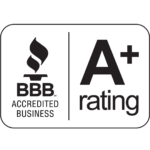Are you devaluing your art and damaging your reputation?
Should you discount your art?
(Transcription)
Artist, Marie Bender, Ambler, Pennsylvania
What was your biggest challenge?
Marie Bender: Just talking to people, period. Like if I was at a show and usually once I start talking you can’t shut me up, but it was different when I came to my work.
What else was a challenge?
Marie Bender: It was a confidence issue. It was about my painting and all of a sudden I would just freeze up thinking they’re going to think or they’re going to look and they’re going to go; “Really? You think your work is worth talking about? You think your work is worth money?” I think that was really a big piece of it. I was just really very unsure of myself.
How confident are you now, on a scale of one to ten?
Marie Bender: Oh, I’d say I am at least at an eight.
What has changed?
Marie Bender: Finding my Why and my What and my How made a major shift in all of that. I have to tell you too, this Facebook page is the first time I belonged to a private Facebook page. I love it. I mean, I don’t post a lot, but the stuff that I’m getting back from other people posting is amazing to me. It’s really helpful.
Have you discounted your art?
Marie Bender: About two months ago, I had someone want to buy a painting and he said, “is that your best price”? And I just had cataract surgery and needed a tooth implants I said “well…”. The painting still hasn’t sold.
How did this person ask you to discount your art?
Marie Bender: I sort of knew this guy and I knew that his way of living was like, he never paid full price for anything. He’d always ask for a discount. So when he did I said okay, and I gave him a discount and he said, is that your best price? And even at that point all the bells and whistles started going off, it was like ‘danger Will Robinson’. There was something not right here. And I said, yeah, that is my best price. And he said, okay, let me think about it. And I said, fine. I’ve just let it go. I just went if he were to come back at me and say, okay, I’ll take it for that price, because I had already agreed to it, I definitely would do that.
Ann Rea: I wouldn’t. I would not. I would say; “Oh yeah, that price? That’s not on the table anymore”.
Marie Bender: Okay.
Ann Rea: No. You snooze, you lose Mister.
How did it make you feel to discount your art?
Marie Bender: I didn’t feel good about myself. I think that was one thing. I felt like I had cheated myself out of something.
Ann Rea: So you paid a cost, but you didn’t even sell a painting.
Marie Bender: Right.
Ann Rea: That’s huge. Because remember if your number one challenge is self-confidence, and you lost self-confidence that’s screwed up, right?
Marie Bender: Yeah. That is screwed up.
What was the consequence?
Marie Bender: I didn’t sell a painting.
What was the other consequence?
Marie Bender: Then the people that are paying me full price are going to get a little pissed off because they didn’t get a discount.
What was the other consequence?
Ann Rea: You give someone a discount and A) if they refer you to someone else (85% of sales come by way of referral), so if they refer you to someone else what’s that someone else going to be looking for?
Marie Bender: The discount.
Ann Rea: Right. And what if you don’t give it to them?
Marie Bender: Then they’re going to be pissed off.
What was the other consequence?
Ann Rea: But when you discount, you immediately diminish the perceived value in the prospect’s mind forever. Not once forever. You’re toast!
But what if you don’t want to lose the sale?
Ann Rea: Do other things to add value. You can always negotiate in a way that doesn’t discount your price. You can say; you know what, I’ll come hang it up on your wall. I did that for a urologist who lives in Palo Alto, they had just redesigned their dining room. They bought four paintings for their dining room. So I drove my ass down to Palo Alto and hung on their wall so that they would be ready for their dinner party and it was one less thing for them to think about.
Marie Bender: Yeah.
Ann Rea: And I sold four paintings like that. That was way back in the day, so that was $12,000. It was worth getting in the car for. Do you think I was going to give them discount? Hell No. He doesn’t give you a discount on surgery.
What else did you learn about discounting?
Marie Bender: Nobody else is. My plumber’s not discounting me. My dentist isn’t discounting me. I finally just went, okay so I guess this is how it works.
Then what happened?
Marie Bender: This woman had seen my painting a couple of nights before I had a show. She had come in with a friend of hers who had bought small pieces of mine and she saw this one piece in process, and I really didn’t think much of it at the time. We were chatting and everything and Leslie bought a couple more pieces when she was here. And I said, well, I’ll let you know how this comes as I get it near completion. So I sent her a photo and said, almost finished. And she said, have you sold it yet? And I said, no. And she said, are you still asking this amount for it? And I went, yeah, I am. And she said, okay, I might have a buyer. And it turned out to be the woman that she had bought to my studio that night which was really pretty sweet. So I also learned, well I guess this reference shit works pretty well too.
Then what did you do?
Marie Bender: I said, okay, what would you not feel badly having it walk out the door for? And why not give it a try? Because if it doesn’t work you still haven’t lost anything. You still have the painting.
Then what happened?
Marie Bender: So I just want to ask, is the price negotiable? And I just said, no it’s not. And I just waited and then she picked up the conversation and again for me not to go into a big song and dance about ‘but it’s a really great price and aren’t you getting a terrific value here’? It was just like, no, it’s not. And she waited alone and she said, okay. The client had asked me to ask, so I wanted to ask. That’s it. If that’s what the cost is, that’s what the cost is.
How did you feel?
Marie Bender: Oh, f*cking empowered. I can’t even tell you. I mean it was like, oh my God! And I think the best part was, I have a couple of friends that are like, “oh you’re taking an online class for this, what’s it like”? And I said, oh man, she’s pulling me inside out and making you read and do all these exercises, and this one guy was like, “well, all I’m going to say is if it starts to work, I’ll pay it attention”. So the day after I found out I sold this painting, I walked in and wen; guess who just sold the three foot by five foot painting? I just figured when this person said, is the price negotiable? I thought, what do I have to lose? So I said, no, it’s not.
What did you sell it for?
Marie Bender: $25,000.
Ann Rea: Oh my God!!!
Then what happened?
Marie Bender: So I got the deposit with a letter from them saying how excited they are about getting the painting. I said, well, it still has to dry so I can varnish it, then we’ll get it down here. I just like walked around for a couple of days going like, never, never have I sold like that. I remember the days of selling something for $1000 and going Zippity Doo Dah.
What if you just love what you do?
Marie Bender: I’ve heard so many artists and God knows I was guilty at one point of saying; “I really do get a lot of pleasure out of it. It’s really important to me.”
Ann Rea: You should.
Marie Bender: And all of a sudden one day I sat back and went, my brother’s a lawyer. He loves what he does…
Ann Rea: And it’s important to him.
Marie Bender: …and it’s important to him and he gets paid a lot of money to do what he does. So it’s like, well, just because I enjoy it doesn’t mean I shouldn’t get paid money for it.
What else have you learned?
Marie Bender: It is a luxury market. Not everybody’s going to like your work, which is okay. It’s okay to ask for money for what you do. And I think that is really one of the biggest things I’ve gotten is it is all right to ask for a lot of money for this because I really do feel that in some ways I am solving a problem for somebody.
What do you notice now?
Marie Bender: When I hear people say; well, I have all this work, I’m just going to have a big yard sale.
What do you say to skeptics?
Marie Bender: I’m thinking of taking a picture of this, and what this is is the money I’ve made since starting your course. To me that’s the proof.

What’s changed for you?
Marie Bender: That my sales have increased in a way that I could not even have imagined if I had not taken this course. Beyond that, and I know this is a buzz word that gets overused a lot, but I feel so much more empowered and I felt comfortable doing it.

Ann Rea, Fine Artist & Mentor
Ann Rea is a San Francisco-based fine artist. She created Making Art Making Money™, the leading and most reputable business program for fine artists since 2005. Rea’s art and business savvy have been featured on ABC, HGTV, Creative Live, The Good Life Project, in the book Career Renegade by Jonathan Fields, the San Francisco Chronicle, Art Business News, Fortune, and Inc. Magazines. Rea’s artistic talent was commended by her mentor, art icon Wayne Thiebaud.


Great to have this reiterated. it’s so true – lawyers and plumbers and dentists don’t give discounts. Thank you Ann and Marie.
You’re welcome!
So incredibly inspired to hear this story! The value that we are creating above and beyond our physical art medium is immense, OF COURSE, we should see it valued monetarily $$$ NICE position you took Marie. Now for me to see how I raise my prices in a dignified way that honors the prototyping phase that I’m in, honors those who’ve bought during that time and then says, “I am more solid in my offering, there is more value to my service and this is the cost to my buyers from here.” Excited!!
Excellent!
You’ve inspired me to aim high and not to discredit my work. My art has value and it’s not cheap!
Excellent!
Dentists and Plumbers don’t discount you.Great lesson I just learnt.Thanks Marie.